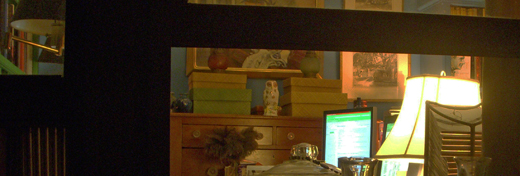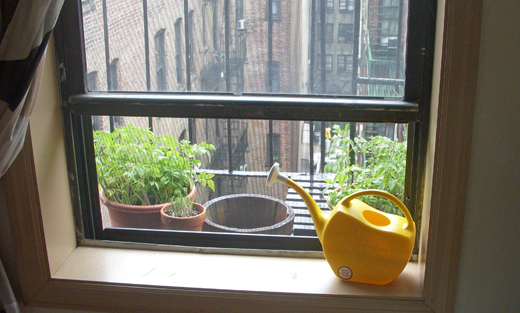Dear Diary: Kate
Thursday, June 18th, 2009
My plan for this evening was to go to Greenpoint with Ms NOLA to a book event starring Maud Newton and Kate Christensen. Ms NOLA gave me her galley copy of Trouble, Kate Christensen’s new, fifth novel, two weeks ago; I got round to writing it up about an hour before it became clear that I would not be making it to Greenpoint. Had the event taken place in Manhattan somewhere, I’d probably have killed myself to get to it — I admire Kate Christensen’s work no end — but Greenpoint is still, for me, terra incognita. It wasn’t a question of directions; Ms NOLA would have got us there without ado. It was simply never having been to that part of Brooklyn. For a hit parade of reasons, today was not the day to acquaint myself with a new-to-me part of Gotham.
I had thought that writing up Trouble would be fairly straightforward. I had a reasonably clar idea of the aspect of the novel that I wanted to write about. But I didn’t know the novel well enough to do the job; I’d only read it once. I wasn’t planning some in-depth Da Vinci Code reading of Trouble, which I had found very straightforward on the first reading. The trouble was that the book turned out not to be so straightforward upon the closer look that any write-up occasions. The meaty center of the book takes place in Mexico City, and I thought that I would write about that, but going over the first hundred pages, which take place right here in Rivers City, I wondered what I’d been thinking. Trouble is like a Hitchcock film: it’s written for the second reading.
Which is very nervy of Ms Christensen — if (as I can’t doubt) she’s aware of this aspect of her art. It’s one thing to ask a bloke to sit through a two hour movie a second time, or even a third, just so that he understands the voyeurist imagery of Rear Window (say). It’s quite another to ask even the most literate blighter to re-read a three-hundred page novel just to “get how it’s done.” It’s not that some mystery is revealed, not that at all. Any more than is the case with Hitchcock. It’s just that the richness of the production can’t be grasped the first time: you don’t know what you’re looking for. The second time, you don’t have to look: it falls on you like plaster in a catastrophe, and you wonder how you missed it.
Like Hitchcock, Kate Christensen is a mistress of the vernacular. She does not deal in the sharp artiness that for me constitutes the East Coast intellectual snob’s safe harbour. You can read Trouble without registering that Ms Christensen is a serious novelist — the first time, anyway. It’s the same with Hitchcock: the man presented himself as a popular entertainer, almost as a vaudevillian. Hitchcock’s elegance is not apparent if you’re thinking of Henry James or Colm TóibÃn. Kate Christensen is even more modest: she writes as if she were undertaking nothing more arduous than this entry. As the author of this entry, however, I’m uniquely placed to note the richness of composition in Ms Christensen’s everyday-sounding work.
So, what was going to be a simple bit of praise for the new novel alarmingly devolved into an ambitious think piece that I wasn’t prepared to write well. So I did the only thing that could be done: I watched a video with Kathleen.

















